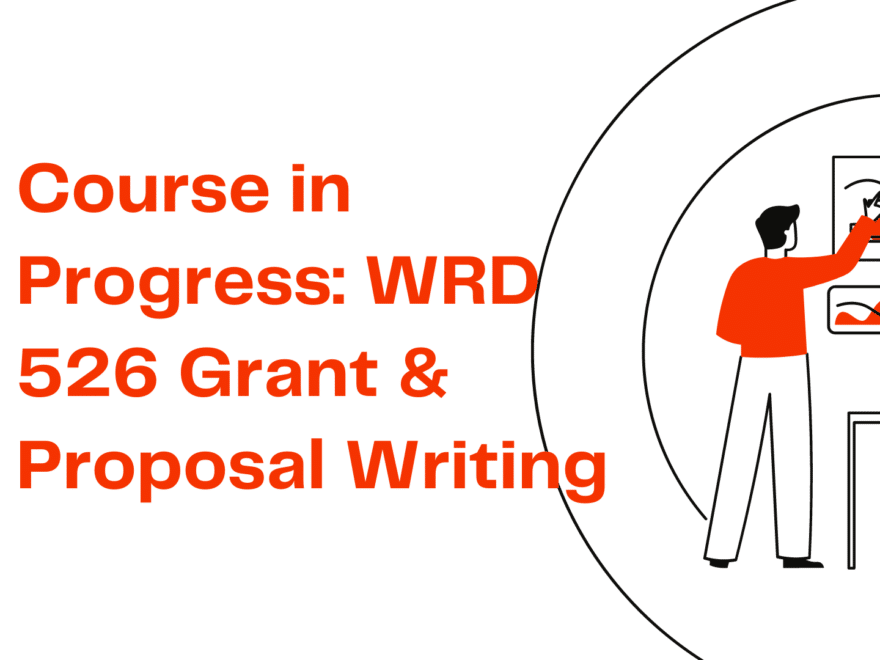Here at the WRD blog, we usually preview and recap courses, but it’s not often we write about classes as they are happening. I am currently in WRD 526 Grant and Proposal Writing, and wanted to give you all a first-hand view on the course as we approach week 10.
WRD 526, taught by Dr. Lisa Dush, aims to give students a foundation for grant writing by way of a partner project. Students (in small groups or individually) are paired with a non-profit organization and prepare a portfolio of deliverables for their NPO. This portfolio is meant to lay the groundwork for grant seeking. Myself and two other students are partnered with Compassionate Care Network, an organization that works toward affordable and accessible healthcare, health education, and advocacy for underserved populations in the Chicago area. Other organizations working with the class include KEEN Chicago, Stepping Stone Theatre, Port Ministries, Make A Wish New York, and Talk 2 Me Foundation.
Each student project is tailored to the needs of the NPO, with different organizations requiring different materials to aid them in grant making. My team has prepared three types of deliverables thus far: a funder tracker, compiled organizational information, and research. The funder tracker lays out potential funders that an organization can attempt to partner with based on the alignment of the NPO and the funder. Compiling information, like the NPO’s mission statement and org history, into one document makes for an easy cut-and-pasteable writing style when it comes to making multiple Letters of Inquiry (LOI) and/or proposals. This kind of cut-and-paste style was key to Content Strategy and making information reusable. Our final deliverable thus far is a document that includes research my team has gathered over the course of the quarter that will aid our NPO in future writing.
For example, we included both hard and soft data points (statistics and testimonials, respectively) to bolster Compassionate Care Network’s claims. CCN works toward health equity, and in writing grants, they must prove to the potential funder that the communities they help are less likely to be healthy and receive health care than other communities. To prove this claim, we provided articles (The Great Unequalizer – Chicago faced severe health inequities long before Covid-19. Whose job is it to solve the problem?) and a stat-finder (https://chicagohealthatlas.org) that shows there is a healthcare accessibility issue and points to underserved areas at risk.
The class meets weekly to discuss readings, ask questions about the content and assignments, and for dedicated group work. There are often short, summative readings that cover the gambit of the grant writing process, from how to get started on planning a project all the way to evaluating program outcomes. It is similar to WRD 532 Content Strategy (also taught by Dr. Dush) in that the class is like a long staircase, each next step is very clear and sturdy, even if the final step may be out of sight. Readings and assignments slowly build off each other, with weekly assignments modeling the deliverables we are creating for our NPO partner.
Grant writing, the class, is much like grant writing, the profession/task in that you have to trust the process, even if it feels slow. You have to trust that you are working towards something, even if you are unsure what it is, only to realize you actually knew the outcome all along and just did not have the words to name it. It can be stressful trying to complete a preliminary and final portfolio of deliverables to a NPO because you want them to be thorough and worthwhile, but knowing that you are helping your partner org in any capacity makes it all very worth it. Grant making and writing can be a tedious and confusing process, but Dr. Dush teaches the class in a stepwise manner that makes the process much more feasible.
So far, I have a good working knowledge of the paperwork and thought process that goes into foundations of grant writing, and I look forward to the final portfolio that will illustrate everything that goes into the grant right up to submission including LOIs and an actual proposal.
